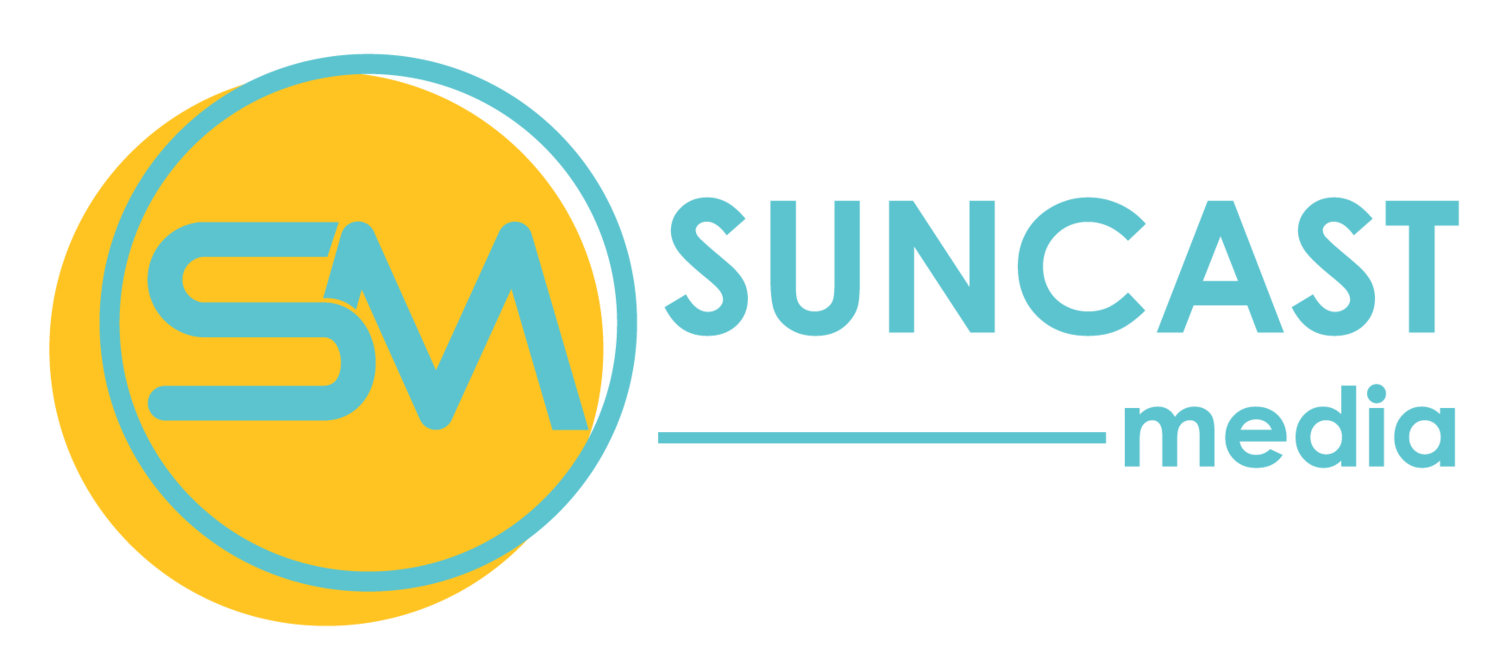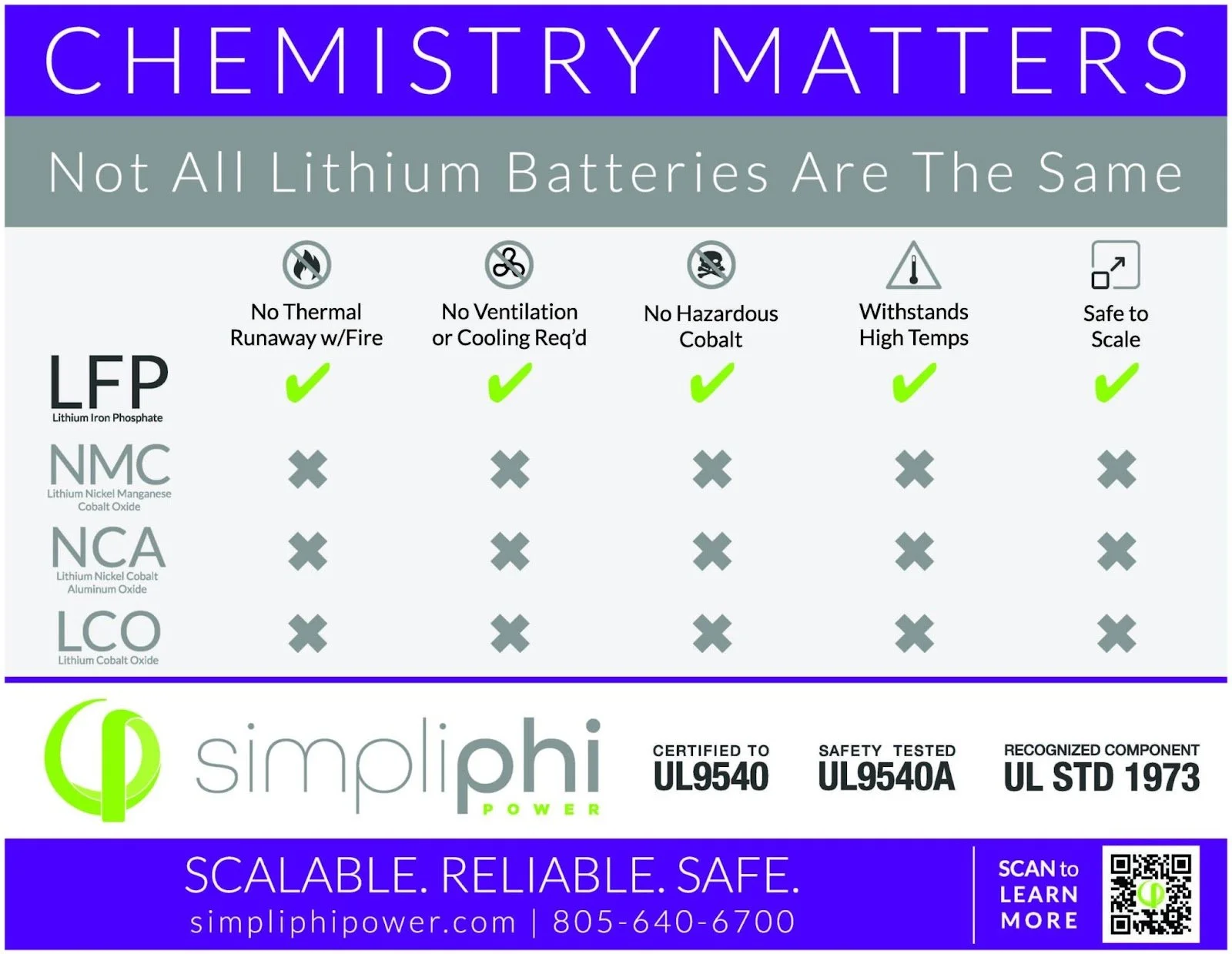We'd love if you'd leave us a 5 ⭐ rating & review and it's never been easier: www.ratethispodcast.com/suncast
SimpliPhi Aims To Take The Fire Out Of Lithium Batteries
If your mobile phone or laptop has ever become uncomfortably hot, you have first-hand experience with a concept called thermal runaway. It's one of the primary risks related to lithium-ion batteries, and it happens when the lithium-ion cell enters an uncontrollable, self-heating state.
In the words of today's entrepreneur, Catherine Von Burg, it's a potential hazard the industry should take seriously. "Even small batteries can create very hazardous situations. And now, many in our industry are thinking about scaling up those very small electronics-type batteries into large home or commercial systems — or, even worse —utility-scale systems. It represents a significant hazard," she said.
Catherine has spent the past decade promoting the transition to cleaner and more sustainable energy sources as CEO of SimpliPhi Power.
This Oxnard, California-based technology company designs and manufactures a range of energy storage and management systems that integrate solar, wind, generator, or any other power generation source in conjunction with or independent from the grid.
We've been fortunate to have Catherine on the show twice before (Episodes 148 and 484) to share how she leveraged her biomedical research and humanitarian background to grow what has become one of the most interesting companies in the energy storage space.
She's back today to help us sort some technical issues and explain how SimpliPhi manufactures energy storage solutions that are not only sustainable but safe.
SimpliPhi products combine what Catherine calls the "inherently safe," non-toxic lithium-ferro phosphate (LFP) chemistry with its proprietary cell and battery architecture, power electronics, Battery Management System (BMS) and manufacturing processes and materials.
When it comes to safety, our industry relies heavily on the National Electrical Code and UL certifications and standards. Two weeks ago, the UL enterprise (formerly Underwriters Laboratories) revealed new brands for its three organizations — UL Research Institutes, UL Standards & Engagement and UL Solutions.
UL Solutions, which delivers testing, inspection and certification services, is the entity behind the two standards we discuss in today's show.
UL 9540 is a safety standard for an energy storage system (ESS) and equipment intended for connection to a local utility grid or standalone application; and
UL 9540A is a test method to address potential fire and explosion hazards associated with a battery system, such as an uninterrupted power supply (UPS) or battery energy storage system (BESS).
Late last year, SimpliPhi announced its PHI batteries completed UL 9540A fire-safety testing protocols and that its AccESS, BOSS.6 and BOSS.12 integrated systems are UL 9540 certified.
During the UL 9540A testing, SimpliPhi forced the cell, battery and unit level equipment into thermal runaway with heaters built into the batteries and demonstrated limited cell to cell propagation, decreasing temperatures, no ignition or fire and no explosive or deflagration events.
In June, Catherine addressed attendees in Bostin at the National Fire Prevention Association conference to explain her company's UL 9540A Fire Safety Test results. She reiterated a core message SimpliPhi has been making since its founding in 2010 — that chemistry matters when creating a safe lithium-ion energy storage solution.
Of course, other elements in the construction and manufacturing of a battery are essential. However, Catherine believes lithium-ion-based batteries made with cobalt are far riskier than lithium-ion chemistries without cobalt, including the LFP that SimpliPhi uses.
"Very often, as your mobile phone or laptop charges or discharges, it can become very warm if not hot. That's the battery heating up as electrons are being shunted in or pulled out, and it's the beginning of a potential thermal runaway situation," she said.
Manufacturers once thought size alone could mitigate the risk of thermal runaway and didn't consider small batteries in consumer electronics dangerous. But after multiple reports of small electronics fires, we know that's not true.
Catherine said SimpliPhi decided to use LFP-based batteries in cylindrical cells after evaluating risk profiles across chemistries and form factors. The company sought UL 9540A testing because "we have a very safe battery" and wanted to prove it.
Testing isn't cheap, costing upwards of half a million dollars. But Catherine thinks it's a necessary expense to promote safety and transparency in an evolving industry.
SimpliPhi will continue demonstrating its commitment to advancing the energy storage market by publicly releasing its UL 9540A test results "to set a standard of transparency concerning performance and public safety issues," she said.
Moreover, she called on all battery manufacturers to publish their UL 9540A test results to inform the public. "It is not the only step to empower the consumer to make informed purchasing decisions, but it is a significant beginning. This type of disclosure will also drive innovation and propel the entire industry forward," she said.
Unfortunately, she added, some battery manufacturers continue to obfuscate the chemistry and form factor they use — "and, frankly, even if they're just white labeling cheap batteries imported under their US brand."
But she believes manufacturers of ESS systems batteries are at the forefront regarding customers. "Manufacturers need to disclose what they are using in building their batteries," she said.
SimpliPhi will also continue educating Nationally Recognized Testing Laboratories (NRTLs) about the safety profile of its chemistry and cell form factor.
"We're also in the business of helping educate firefighters and authorities having jurisdiction (AHJ), which is why we release our report anytime it's asked, and put our reports on our website, so anybody who wants these can download them," she said.
She said this would propel innovation and competition to move battery chemistry beyond lithium-ion into other types of solutions. "Transparency and competition are good because they drive innovation, and consumers drive markets. They need to know about that innovation and the materials used in the products they purchase," she continued.
It's a great conversation, and I hope you take the time to listen to it. And again — head over to SimpliphiPower.com/fire-safety to learn more about the company, its technologies and its UL 9540A- Fire Safety Test.
TIMESTAMPS:
(05:23) Distinction between 9540 and 9540A
(07:23) What thermal runaway represent for the end user
(10:31)Hazards of risk profile across chemistry to the storage industry
(16:42) Test protocol required to go through 9540A
(20:18) Is IP trade secrets the reason for not publishing 9540A test result data
(24:44) What 9540 and 9540A can help identify
(32:06) How transparency and competition will drive innovation
(35:50) Where to learn more about 9540A
(38:25) Wrap up
NOTEWORTHY QUOTE:
“We have taken a position as a company that we will take the risk and publicly publish our 9540A test results at the cell battery and large unit level, because we are committed to informing the industry.”
ABOUT THE HOST OF SUNCAST:
Nico Johnson is the creator and host of SunCast, consistently rated a top solar podcast in the clean energy sector. The content of the show is geared towards listeners looking for insights on where the markets are headed, how to position themselves or their companies, and what today's market leaders do to stay ahead of the pack.
Nico is an Investor, Executive Coach, and 15-year veteran of the solar industry, having led development in the US and Latin America for global companies like Trina Solar and Conergy.
You can connect with Nico Johnson on Twitter, LinkedIn or email.
If you’ve been second-guessing your work decisions or maybe trying to reconsider how you "fit" in the renewable energy industry -> grab 20 minutes on Nico's calendar and discuss whether having him as Your personal coach might be the right next step.

